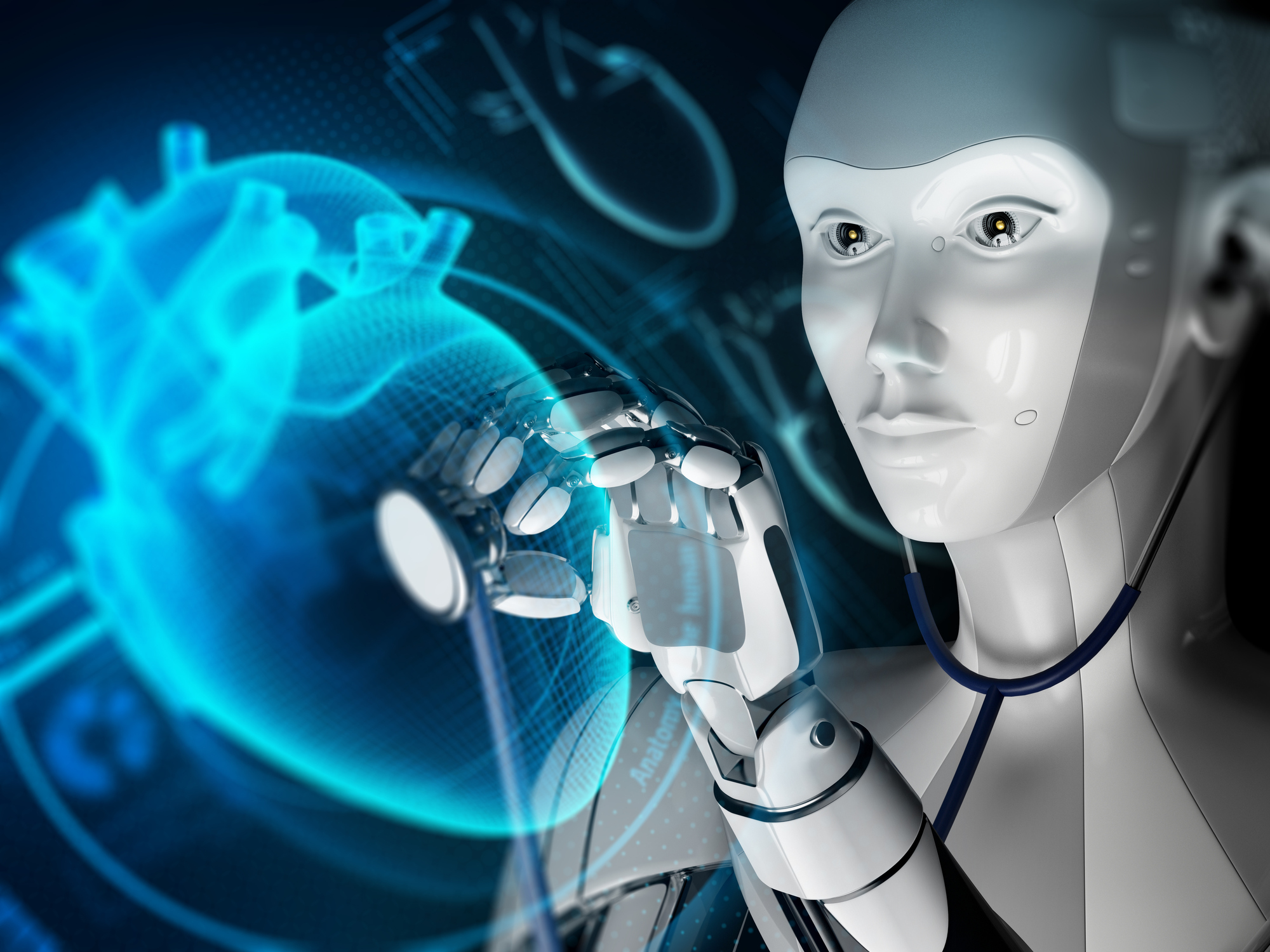The healthcare industry is undergoing a significant transformation, largely driven by the advancements in artificial intelligence (AI) and automation technologies. These technologies are not only enhancing the quality of care but also improving operational efficiency and reducing costs. In 2025, the role of AI in healthcare automation will become even more crucial, with the potential to revolutionize patient care, streamline administrative processes, and enable healthcare professionals to provide more personalized and accurate treatments.
AI-powered healthcare automation is rapidly moving beyond theoretical applications into real-world solutions, ranging from clinical decision support to administrative tasks and even drug discovery. In this article, we will explore the state of AI in healthcare automation, its applications, challenges, and how the industry is evolving to meet the demands of modern healthcare in 2025.
What is AI in Healthcare Automation?
AI in healthcare automation refers to the use of AI technologies such as machine learning, natural language processing (NLP), and robotic process automation (RPA) to enhance or replace certain healthcare tasks traditionally done by humans. These AI systems can analyze vast amounts of medical data, predict patient outcomes, automate administrative tasks, and even assist in complex surgeries.
In the next few years, AI will be more deeply integrated into healthcare operations, helping providers make faster, more accurate decisions and improving patient experiences. The potential applications of AI in healthcare are vast, but some of the most notable include clinical decision-making, patient care, administrative efficiency, and medical research.
Clinical Decision Support Systems
Clinical decision support systems (CDSS) are already widely used in healthcare, and their reliance on AI is growing rapidly. These systems assist healthcare providers by analyzing patient data and presenting evidence-based recommendations for treatment plans. In 2025, AI will be able to sift through vast amounts of clinical data, including electronic health records (EHRs), medical imaging, and even genetic data, to help doctors make more informed decisions.
AI will enhance CDSS by providing predictive analytics, helping to forecast patient outcomes based on data patterns. For instance, AI can predict which patients are at risk of developing certain conditions or which treatments are most likely to succeed for individual patients. This will lead to more personalized care, improved patient outcomes, and fewer diagnostic errors, which is especially important in an era where precision medicine is gaining traction.
With these advancements, AI will become a critical component of business trends in healthcare, allowing hospitals and clinics to provide higher quality care at a lower cost.

Automated Medical Imaging and Diagnostics
One of the most transformative uses of AI in healthcare is in medical imaging. AI-powered diagnostic tools are already being used to interpret medical images such as X-rays, CT scans, MRIs, and ultrasounds. By 2025, these tools will be even more advanced, able to analyze images with greater precision and identify abnormalities that may be missed by human radiologists.
AI’s ability to detect diseases such as cancer, heart disease, and neurological disorders through medical imaging will revolutionize early diagnosis. Moreover, AI can analyze patient data in real-time, offering quicker results and enabling faster treatment. As AI continues to advance, healthcare providers will be able to detect diseases earlier, improving patient survival rates and reducing healthcare costs.
In addition to enhancing diagnostic accuracy, AI technologies tools will also reduce the administrative burden on medical professionals. Tasks such as labeling images and updating patient records will be automated, allowing healthcare workers to focus on patient care.
Streamlining Administrative Tasks
The administrative side of healthcare is often bogged down with repetitive and time-consuming tasks, such as scheduling, billing, insurance verification, and managing patient records. By 2025, AI and automation will play an even greater role in streamlining these administrative tasks, freeing up time for healthcare providers to focus on what truly matters—caring for their patients.
Robotic process automation (RPA) is already being used in hospitals to handle administrative functions, such as processing insurance claims, billing, and updating patient data. RPA can automate these processes with minimal human intervention, reducing errors, improving efficiency, and lowering costs. AI’s natural language processing (NLP) capabilities will also be used to read and process documents, such as medical records, patient consent forms, and insurance papers, allowing healthcare workers to process them more quickly and accurately.
By implementing AI-powered automation, healthcare providers will be able to increase operational efficiency, reduce overhead costs, and provide a better patient experience. In fact, AI in digital services is poised to become a key element in business ideas for healthcare providers, improving their bottom line while delivering superior care.
AI for Personalized Patient Care
Personalized care is one of the most exciting developments in healthcare, and AI will be a driving force behind it. By 2025, AI will enable more precise tailoring of treatments to individual patients, based on factors like genetics, lifestyle, and environment. Machine learning algorithms will help doctors better understand the patient’s unique health profile, enabling them to choose the most effective treatments.
AI will also help with patient monitoring, providing real-time insights into a patient’s condition and alerting healthcare providers to any significant changes. Wearable devices, powered by AI, will collect data on patients’ vital signs, activity levels, and even sleep patterns. This data can be analyzed to provide actionable insights, allowing for proactive care and early intervention.
For healthcare businesses focusing on sustainable businesses and improving patient satisfaction, incorporating AI-driven personalized care will be crucial in staying competitive in 2025. Healthcare providers who adopt AI-driven personalization will be able to offer a better quality of care, increasing patient retention and satisfaction.
AI in Drug Discovery and Development
The process of drug discovery is traditionally long, costly, and risky. However, AI is helping pharmaceutical companies streamline this process by predicting which drug compounds are likely to be most effective. AI can analyze large datasets, including chemical properties, biological data, and clinical trial results, to identify promising drug candidates.
By 2025, AI will play a significant role in reducing the time it takes to bring new drugs to market, potentially saving millions of dollars in research and development costs. AI can also help identify repurposed drugs, which are already approved for use in one condition but may be effective for another. This can significantly speed up the process of finding treatments for rare diseases or emerging health threats.
For tech-based startups in the healthcare sector, AI-powered drug discovery represents a massive opportunity for innovation and growth. By leveraging AI, these companies can significantly reduce costs, improve the accuracy of predictions, and ultimately bring life-saving treatments to patients faster.
Challenges and Considerations
While AI and automation offer numerous benefits to healthcare, they also present some challenges. One of the biggest hurdles is ensuring data privacy and security. Healthcare data is highly sensitive, and as more data is collected and analyzed by AI systems, the risk of data breaches increases. Ensuring that patient information is protected will be essential as AI becomes more embedded in healthcare systems.
Another challenge is the need for healthcare professionals to adapt to new technologies. While AI can assist in many areas, it cannot replace the expertise and judgment of healthcare workers. Training healthcare professionals to effectively use AI tools will be crucial to ensuring that these technologies are implemented successfully.
Additionally, as healthcare automation becomes more widespread, the risk of job displacement could become a concern. While AI will undoubtedly improve efficiency, the healthcare industry will need to find ways to balance automation with the need for human labor, ensuring that workers are retrained and integrated into new roles.
Conclusion
AI-powered healthcare automation will be a game-changer for the industry by 2025. From clinical decision-making and medical imaging to personalized patient care and drug discovery, AI has the potential to significantly improve the quality of healthcare while reducing costs. Healthcare providers who embrace these technologies will be better equipped to deliver high-quality care and meet the demands of an increasingly tech-savvy patient base.
As AI continues to evolve, it will drive business trends in healthcare automation, helping to streamline operations and improve patient outcomes. For startups and established businesses in the healthcare sector, integrating AI into their operations will be crucial for staying competitive and meeting the demands of a rapidly changing market.
For more insights into how AI and automation are shaping the future of healthcare, visit AI and Automation in Business Operations.

